ACT Drug Decriminalisation: your questions answered
The ACT has passed legislation to decriminalise the possession of small quantities of drugs. When does it come into effect? Can you buy drugs legally in Canberra? Here’s what it means for you.
Canberra Star
Don't miss out on the headlines from Canberra Star. Followed categories will be added to My News.
The ACT has become the first Australian jurisdiction to pass a law to decriminalise the possession of small quantities of illicit drugs.
The move comes two years after the ACT became the first state or territory to decriminalise personal possession of Cannabis.
Here’s a rundown of what it means, how the changes impact you, when the law change takes effect and if you could soon be able to purchase these drugs legally.
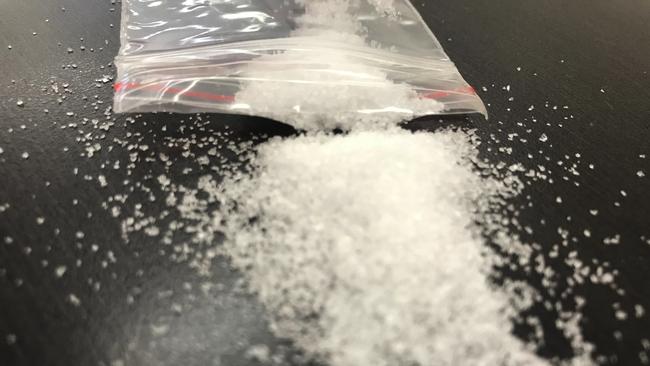
Give us the basics – what does this law mean?
In simple terms the law aims to keep people caught possessing small quantities out of the criminal justice system.
The law means if someone is caught with drugs within the decriminalised limit, they will not be charged with drug possession.
Instead police will either give people a caution, a $100 fine or be referred to a drug diversion program.
An ACT Policing spokesperson said “further options would be considered” if a person caught with drugs under the decriminalised threshold failed to pay the fine or go to the drug diversion program.
This means there are still consequences for being caught with illicit drugs but those caught with small quantities will be spared the rigmarole of the court system and are not at risk of conviction.
Under current laws people found in possession of any quantity of illicit drugs can be charged with drug possession and if convicted can face imprisonment or be fined up to $8000.
When does the law come into place?
It will take a year to implement the law.
During this time, police and other frontline workers will receive training on how to implement the law.
A statement from ACT policing said there were “many factors” for police to consider during the next 12 months.
“ACT Policing will consult with the ACT Government stakeholders to confirm the implementation of this new approach to small amount drug possession,” the spokesman said.
“ACT Policing can’t speculate on possible impacts of this change – however we welcome a commitment to review the working of the legislation two years after its implementation.
The ACT Government will also use this time to launch a communication campaign to educate Canberrans about the new law.
What happens if you are caught with drugs under the limit between now and October 2023?
An ACT Policing spokesman confirmed until the law comes into effect possessing small quantities of illicit drugs remains a criminal offence.
This means anyone caught with any quantity of illicit drugs other than cannabis in the ACT could be charged with drug possession, and could face imprisonment or a fine up to $8000 if convicted.
When asked if people convicted of drug possession under the decriminalised limit prior to October 23 an ACT Law Society spokesman said the Society was not aware of any provision in the legislation that could allow appeals.
The commencement of legislation which decriminalises certain behaviour that formerly amounted to a criminal offence, is not itself a ground for appealing a historical conviction,” the spokesman said.
What happens if you are caught with drugs over the decriminalised limit after October 2023?
You will be charged with drug possession.
Those convicted of drug possession can still face imprisonment or a fine up to $8000.
Will it be legal for drug dealers to sell if they are only in possession of drugs under the legal limit?
No.
Drug trafficking and manufacturing will still be illegal in the ACT.
What about other drug- related offences – will they be legal now?
The new law will only affect people who currently would be on the lowest end of drug possession charges.
This means all other drug related offences still remain in place.
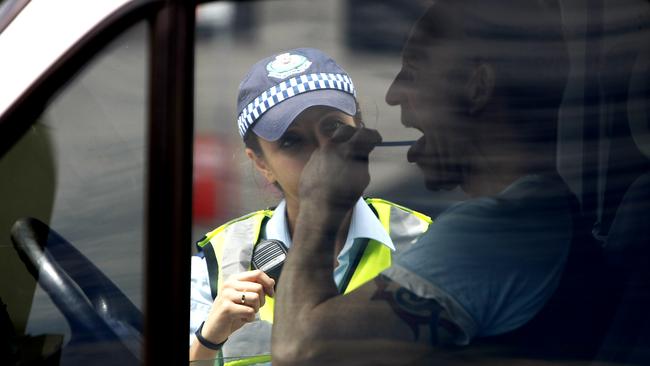
For example, if someone was caught driving with meth in their system and police found they had 0.5 grams of meth in their possession, they would still be charged with drug driving, but they would not be charged with drug possession.
This is similar to how offences other than personal possession related to cannabis have worked in the ACT.
Will drug decriminalisation de-clutter the ACT Court system?
Probably not.
An ACT Law Society spokesman said while the society supports a “harm minimisation and therapeutic approach” in dealing with drug users they expect the bill will have a “minimal” impact on diverting users from the criminal justice system.
“We observe that it is relatively uncommon for drug users to come before the courts charged only with drug possession,” the spokesman said.
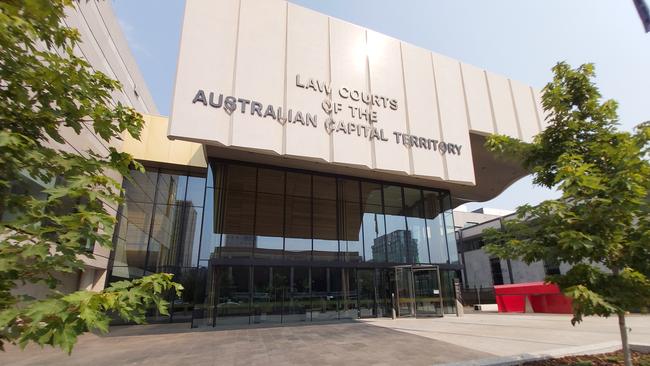
“Possession of a drug of dependence is typically charged alongside other criminal offences such as burglary, assault, or drug driving.
“We also observe the connection between the use of certain illicit substances such as ice, and tendencies toward violent crime, including family violence.
“In such instances, the decriminalisation of the offender’s drug-use will have little bearing on reducing pressures faced by the courts.”
Will there be legal avenues for people to buy small quantities of illicit drugs.
No.
Unlike Cannabis, where Canberrans are allowed to grow up to two plants — meaning they do not need to rely on drug dealers for their supply, there are no legal avenues to acquire these illicit drugs.
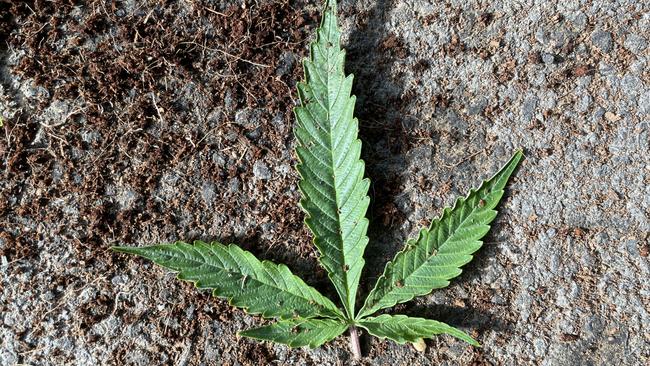
However those seeking to curb their drug habits can access treatment at methadone clinics if they have a referral from their doctor.
Methadone and buprenorphine are legal in Australia if administered through a treating program.
What other services are available in Canberra for harm minimisation?
Earlier this year Australia’s first permanent drug testing site CanTEST was launched by the ACT Government.
The testing site is run by Canberra Alliance for Harm Minimisation and Advocacy (CAHMA).
Canberra currently does not have a safe injecting room, however the ACT Drug Strategy Action Plan has recommended the ACT government should launch an injection room.
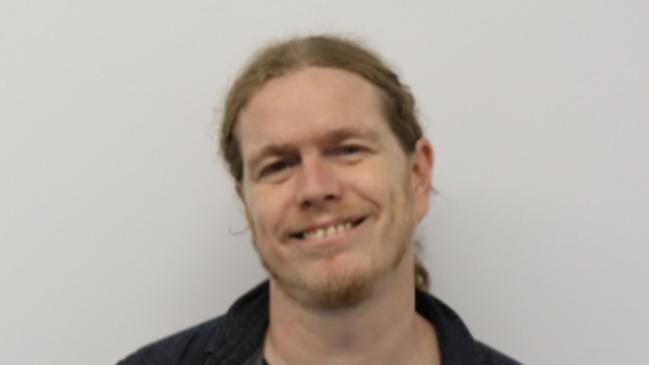
CAHMA executive director Chris Gough said the bill would made harm reduction work easier.
“Harm reduction services currently help people with 2 areas of drug related harm: the harms of the drugs themselves and the harms of drug criminalisation,” he said.
“This legislation will alleviate some of the pressure on harm reduction services who currently spend much of their time helping people to minimise the harms of criminalisation such as court appearances and incarceration.
“This will mean we can focus on helping people stay safe and reducing the harm of the drugs that they are using.”
How will this law interact with Commonwealth law?
ACT’s incoming decriminalisation law is in conflict with commonwealth drug laws.
It's not the first time ACT’s laws have been in conflict with federal laws — ACT’s law which decriminalises cannabis remains in conflict with the Commonwealth.
A spokesman for the ACT Law society said when the law comes into place “police will essentially be required to navigate the application of two different laws.
“While ordinarily Commonwealth law overrides Territory law to the extent of the inconsistency, we understand that the Chief Police Officer (Neil Gaughan) intends to release guidance advising police officers to apply the Territory legislation,” the spokesman said.
“Noting that this approach appears largely discretionary, the Society remains concerned about the resulting uncertainty for members of the public.”
How will these laws affect state borders?
ACT’s drug decriminalisation law will stop at the NSW border.
Since cannabis was decriminalised in the ACT Canberrans can still be arrested for possessing the drug if they are interstate.
Canberrans can also be arrested for drug related offences — such as drug driving — in NSW even if they consumed cannabis in the ACT.
In a statement NSW Deputy Premier and Police Minister Paul Toole said illicit drugs will remain illegal in NSW.
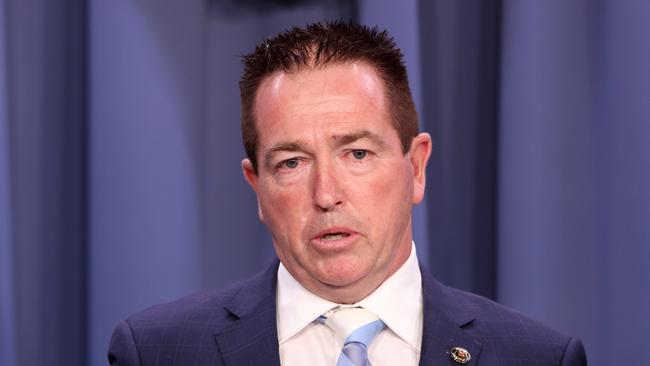
“Tragically, too many families and communities are living with the consequences of people taking illegal drugs,” he said.
“The NSW Government last month announced the single-largest investment in evidence-based alcohol and other drug (AOD) services in the State’s history, noting that illicit drugs will remain illegal.
“I cannot be clearer: there is no safe way to take drugs.”
What are the criticisms against the bill?
Drug law reform is a controversial issue and the bill has received criticism both from people who say it goes too far, and others who say it does not go far enough.
People on the “too far” camp include members of the Canberra Liberals who voted against the law.
Liberal MLA Peter Cain said on Thursday during debate on the bill that there was a “false dichotomy” between harm reduction and drug criminalisation.
Mr Cain has long advocated that criminalising drug possession gave drug users an impetus to seek out help for their addiction.
“The reason why possessing these drugs is a crime is because it hurts people,” he said during Thursday’s debate.
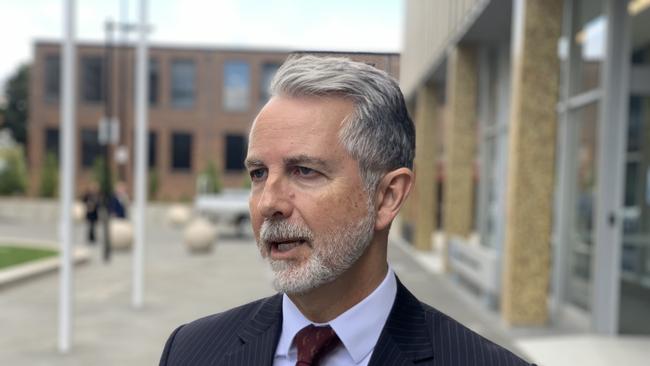
ACT Deputy Opposition Leader Jeremy Hanson promised to make repealing the decriminalisation law a part of the Canberra Liberals' platform in the 2024 ACT Election.
“We don’t want more meth on our streets, we don’t want more heroin on our streets,” Mr Hanson said on Thursday.
Mr Hanson has previously raised concerns that drug decriminalisation in the ACT would lead to “narco-tourism”.
Speaking at a community forum on drug reform in August ACT Chief Police Officer Neil Gaughan said he supported the bill but said the proposed drug limits were too high.
“Two grams of drugs is about $2000 worth of meth – it’s too much,” he said.
“I’m not sure how anyone can actually buy $2000 of meth unless its on ‘tick’ which is owing the drug dealer money, or they’ve committed a criminal offence.
“I don’t know about you but $2000 is a lot of money for me.”
Shortly after the bill was passed on Thursday and amendment from Health Minister Rachel Stephen Smith passed which lowered the decriminalised threshold for some of the drugs listed.
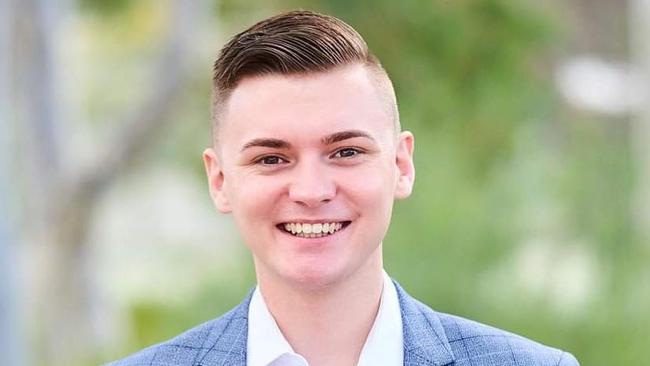
People on the “not far enough camp” include Alcohol and Drug Foundation CEO Dr Erin Lalor AM who described the law as a “step in the right direction” but said the organisation would prefer it if fines were removed “altogether”.
She also said the organisation would want to see penalties removed for anyone found with drugs below the trafficable quantity- which is higher than the decriminalisation limits.
This sentiment echoes that of ACT Greens Crossbencher Johnathan Davis who unsuccessfully pushed an amendment to the bill which would increase the decriminalised limits to the limit for non-trafficable quantities in the ACT criminal code.
Mr Gough said harm minimisation advocates want to see the limit raised to “align with the ACT’s evidence based trafficking threshold” and the fine removed.
“This legislation doesn’t cover all personal drug use, only small quantities of personal drugs,” he said.
“(We want the fine removed) so we are not sending mixed signals to people who use drugs, but rather are clear that society supports people with a health issue and doesn’t punish them by fining them for needing help.”
- The Australian Federal Police Association were contacted for comment.




